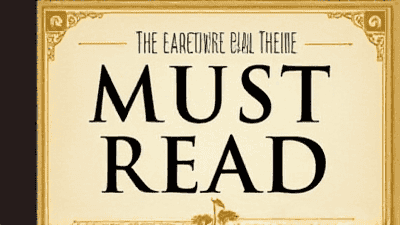
Introduction
The literary world, seemingly timeless, is in constant flux, shaped by technological advancements, evolving reader preferences, and profound societal shifts. As we navigate 2024, the publishing industry faces a fascinating interplay of innovation and tradition, manifesting in several potent book trends. These aren't merely fleeting fads but fundamental shifts that redefine how stories are created, consumed, and valued, promising a richer, more diverse literary experience for all. These developments warrant close examination for anyone invested in the future of storytelling.
Understanding these evolving trends is paramount for authors, publishers, booksellers, and, most importantly, readers. For the industry, it's about navigating market dynamics, optimizing content strategies, and identifying growth opportunities in a landscape increasingly influenced by AI-driven content creation, evolving digital platforms, and a renewed emphasis on diverse narratives. The rise of new consumption patterns, like audiobooks and serial fiction, alongside a critical re-evaluation of genre boundaries, highlights a vibrant yet challenging environment. These trends impact everything from manuscript acquisition and marketing campaigns to reader discovery algorithms and the very definition of a "book." Ignoring these shifts could lead to missed opportunities for innovation, alienating new generations of readers, and failing to support the voices that define our times. What impact would it have on our understanding or practice of literature if we failed to fully comprehend these transformative forces shaping our reading future?
The Algorithmic Muse

Generative AI: From Drafting to Discovery
The integration of artificial intelligence (AI), particularly generative AI, is rapidly transforming the authoring and publishing processes. Tools like large language models (LLMs) are moving beyond simple grammar checks to assist writers in brainstorming plot points, generating character profiles, drafting initial prose, or even producing marketing copy for their completed works. For instance, a novelist struggling with a specific scene might prompt an AI to generate several stylistic variations or dialogue options, providing a creative springboard. Publishers are also exploring AI for market analysis, identifying emerging genre interests, or optimizing metadata for better discoverability. This assistance can significantly reduce the time spent on tedious tasks, freeing authors to focus on the core creative aspects of their craft. However, the rise of AI also sparks crucial debates concerning originality, intellectual property (who owns AI-generated content?), and the potential devaluation of human creativity. As AI models become more sophisticated, the line between AI-assisted and AI-authored content blurs, posing ethical dilemmas for the industry and its consumers. The key lies in viewing AI as a powerful co-pilot, not a replacement, for human ingenuity.
Beyond the Page: The Sonic Story
Immersive Audiobooks and Podcast-Novel Hybrids
Audiobooks continue their phenomenal growth trajectory, cementing their status as a preferred format for many readers. Their convenience, allowing consumption during commutes, workouts, or household chores, appeals to modern lifestyles. Beyond simple narration, 2024 is witnessing a surge in "immersive audiobooks" featuring full cast performances, intricate sound design, and original musical scores that transform the listening experience into something akin to a radio play. Companies like Audible and Storytel are investing heavily in these productions, recognizing the demand for highly polished audio content. Furthermore, the lines between audiobooks and podcasts are increasingly blurring, with "audio-first" fiction series emerging – narrative productions designed specifically for the audio medium, often released episodically like podcasts. This trend opens new avenues for storytelling, allowing authors to experiment with serialized formats and reach audiences who might not engage with traditional print or e-books. The accessibility offered by audio, including for visually impaired readers, underscores its importance in fostering a more inclusive literary landscape.
To illustrate the dynamic shift in consumption, consider the following hypothetical data comparing growth rates:
| Format | 2022 Growth Rate (%) | 2023 Growth Rate (%) | 2024 Proj. Growth Rate (%) |
|---|---|---|---|
| Audiobooks | +20% | +18% | +15% |
| E-books | +5% | +4% | +3% |
| Print Books | +2% | +1% | +0.5% |
This table highlights the sustained robust growth of audiobooks compared to other formats. While print and e-books still hold significant market share, the consistently higher growth in audio signals a fundamental shift in how people access and enjoy stories. This trend necessitates publishers to prioritize audio production earlier in the publishing cycle and consider audio-first strategies to capture expanding listener bases.
The Social Bookstore

Fandoms, Algorithms, and the Rise of BookTok
Social media platforms have evolved into powerful discovery engines for books, fundamentally reshaping how readers find their next read and how authors gain visibility. No platform exemplifies this more than TikTok's "BookTok" community, where short video reviews, emotional reactions, and curated reading lists can catapult obscure titles or forgotten backlist books into overnight bestsellers. This phenomenon showcases the immense power of peer-to-peer recommendation and authentic engagement over traditional marketing channels. Beyond TikTok, Bookstagram (Instagram for books) and dedicated community platforms like Goodreads and StoryGraph continue to thrive, allowing readers to connect, share insights, and collectively influence buying patterns. For authors, especially independent ones, these platforms offer direct access to potential readers, bypassing traditional gatekeepers and fostering a direct author-reader relationship. The algorithmic nature of these platforms means that niche interests can find their audience more effectively than ever before, leading to a diversification of popular titles and a greater emphasis on specific sub-genres and tropes driven by community demand.
Conclusion
The literary landscape of 2024 is a vibrant tapestry woven from innovation, community, and evolving consumer desires. We've explored how generative AI is empowering authors and streamlining publishing processes, heralding a new era of creative assistance and analytical insight, albeit with ongoing debates about authorship and ethics. The relentless ascent of audiobooks and "audio-first" narratives underscores a fundamental shift in consumption habits, offering immersive storytelling experiences tailored to modern, on-the-go lifestyles. Concurrently, the rise of social media-driven communities like BookTok has democratized book discovery, proving that authentic peer recommendations can ignite viral sensations and reshape bestseller lists with unprecedented speed. These trends collectively illustrate a dynamic industry responding to technological advancements and reader demand, transforming how stories are conceived, delivered, and cherished. They affirm that while the medium may evolve, the human hunger for narrative remains as potent as ever, propelling literature into exciting, uncharted territories.
Looking ahead, these trends are poised to accelerate, presenting both remarkable opportunities and significant challenges. The ethical frameworks surrounding AI in writing will require continuous refinement, alongside innovations in digital rights management and fair compensation for creators. Further technological iterations could see books integrated with augmented reality (AR) or virtual reality (VR), creating truly interactive and multimodal narratives that blur the lines between reading and experiencing. Interdisciplinary integration with gaming, educational technology, and even mental wellness applications suggests a future where literature is a core component of a broader experiential ecosystem. The ongoing quest for sustainability in publishing practices will also gain urgency, pushing for eco-friendlier production and distribution. Continuous research into reader psychology, platform dynamics, and technological capabilities will be crucial for authors and publishers alike to adapt, innovate, and thrive. The future of reading isn't static; it's a dynamic, collaborative journey requiring open minds and a commitment to nurturing the next generation of stories and storytellers.
Frequently Asked Questions (FAQ)

Q: How will AI truly impact the role of human authors and creativity in the long term? A: The long-term impact of AI on human authorship and creativity is a nuanced and frequently debated topic, far from a simple replacement scenario. Instead, AI is largely seen as an augmentative tool, a powerful assistant that can offload tedious tasks and stimulate creative processes. For instance, AI can help authors overcome writer's block by generating prompts, expand on a specific plot idea, or even refine prose for clarity and style. It can manage complex world-building details or character arcs, allowing authors to focus on the emotional depth and unique voice that only a human can provide. The fear that AI will entirely replace human authors often stems from a misunderstanding of current AI capabilities; while AI can generate coherent text, it struggles with genuine originality, complex narrative structures driven by profound human insight, and the nuanced emotional intelligence that resonates deeply with readers. Human authors bring lived experience, cultural context, subjective interpretation, and an inherent understanding of the human condition to their work, elements that AI cannot replicate. Ultimately, AI is likely to evolve into a ubiquitous tool in the author's toolkit, much like word processors or research databases, enabling faster production and greater exploration of ideas, while simultaneously elevating the value of unique human perspectives and storytelling artistry.
Q: Are digital and audio formats truly replacing traditional print books, or can they coexist? A: The relationship between digital, audio, and traditional print formats is overwhelmingly one of coexistence and expansion, rather than outright replacement. While digital (e-books) and audio formats have seen significant growth, particularly over the last decade, print books have consistently demonstrated remarkable resilience. Print sales have stabilized and even shown slight increases in many markets, indicating a strong enduring preference for the tangible experience of a physical book. Many readers are format-agnostic, choosing the medium that best suits their current situation or preference: an e-book for travel, an audiobook for commuting or multitasking, and a print book for focused, immersive reading at home. Each format offers distinct advantages; print provides a sensory experience, a collector's item, and a break from screens; e-books offer portability and instant access; and audiobooks provide convenience and accessibility. The growth of digital and audio often caters to new reading moments or demographics, expanding the overall market for stories rather than simply cannibalizing print sales. Publishers, therefore, are increasingly adopting multi-format strategies, ensuring their content is available across all mediums to reach the widest possible audience and satisfy diverse consumer preferences. The future of reading is hybrid, celebrating the unique strengths of each format.








